This is part five in a five part series. You can view the previous article on ‘looking the part’ here.
There is something fitting about waiting until the fifth and final installment of this series before bringing up what is ultimately the most important aspect of whatever it is that you made. You could meticulously plan out your marketing strategy and execute it flawlessly but what is the point if your project sucks?
People forget that filmmaking is an acquired skill, honed with experience. Unless you have a lot of talented and experienced friends, or the money to pay professionals it will be difficult to get everything right your first time out.
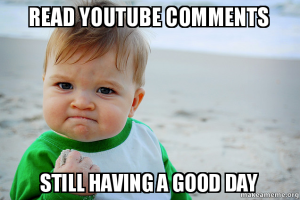 Web series fight an uphill battle against preconceived expectations due to the fact that the medium is often an area of experimentation and practice for creators with less experience. As time goes on this becomes less true, but the stigma will remain.
Web series fight an uphill battle against preconceived expectations due to the fact that the medium is often an area of experimentation and practice for creators with less experience. As time goes on this becomes less true, but the stigma will remain.
So the bottom line is, as a web producer you consistently have to prove yourself to potential viewers in ways that creators in other mediums do not. The slightest sign of a crack in your talents will lead to douchey YouTube comments or soul crushing apathy.
Audiences will judge quality in three main ways. Those three categories are listed below in order of how quickly they can convert your active viewer to an inactive one.
Your Technical Skills Were Lacking
Here is a short list of some of the technical components to our production that a viewer is going to notice: video quality, lighting, dialogue clarity, sound design & ambient audio, camera movements and stability, visual and special effects, and editing.
Most of these are big umbrellas over a whole bunch of different skills and components as well. For example ‘video quality’ is impacted not only by the specifications of the camera you use but also your operators ability to use it and your directors ability to stage it. Do you use a long lens or a short lens? How do your actors move through the frame? Did you record in 4K or did you somehow flip it to some archaic setting like 480i?
These are things that take practice and experience to ensure that you get them right. You might not screw up dramatically but your audience will see when things aren’t quite right. They notice things like awkward framing, a lack of depth in your shots, uncomfortable edits, and countless other subtleties that clue the viewer in on your inexperience.
Having watched web series for a few years now I can easily rank the ways in which shows coaxed me into closing the window. The most obvious reason is ‘bad sound’ which is an umbrella term covering a whole bunch of potential issues.
The main reason for bad sound is recording dialogue in an overly noisy environment. I’m as guilty of this as anyone, opting to film along side busy city streets (most places you might shoot in the LA area are near a busy street) or around groups of people. Ideally you want to avoid these areas as best as you can – scouting your location out with sound in mind before settling on it.
I mention location scouting because, as a general rule, I find your location sound on the day of filming is always twice as bad as it was when you saw the location originally. Yes, I made that number up entirely but here are a few things I ran into on the day that had eluded me during my initial inspection for a location.
- one location was in the flight path of LAX
- another location had a hidden wind turbine that periodically turned on
- another time I scouted a location near a quiet street that turned into utter chaos at rush hour
Now you can work around rough location sound with a little technique. Certain repetitive sounds or high / low frequency sounds can be minimized with editing software. Cutting your audio files tightly around dialogue and mixing in wild sound and effects can work wonders. One time we were able to mitigate car noise when shooting on the street by running takes during red lights – little tricks and reading your environment can make a big difference. If you are shooting in someone’s kitchen don’t forget to turn off the fridge!!
The next most egregious error relates to backgrounds. Your subject often covers less than half of your screen real estate, which means your backgrounds are a significant and often under appreciated part of your frame. It’s common for creators to film in their own small apartments and back their characters up against blank walls. There is no excuse for your characters to spend more than a moment up against a bland wall – I will turn that crap off!
It’s easy… put some stuff on the wall, paint it a color that isn’t white, and put as much distance between your actor and the wall as possible. This is the main reason legit budget productions will seek out large spaces to film in.
The background issue ties into another issue, poor video quality. Things like shooting outside in bright, mid day sunlight, or at the other end shooting without lights, are instant signs of blah.
Other terrible technical errors are things like, awkward pacing and poor editing – watch a few movies with eyes on editing before you start cutting your video. Edit a few scenes together before you jump into a big project, because there is so much you learn about making sure your actors give you what you need to make smooth edits.
The Writing Or The Acting Was Poor
Perhaps the biggest sign of a low budget production is a bad acting performance. Bad acting in a film can stick out like a sore thumb and take the viewer right out of the story. Right there with poor audio awful acting is perhaps the issue most likely to get your potential viewer to switch off. There is a connection between the two – something they also share with production value and technical achievement – and that is a relationship with ‘believability.’ While technical proficiency is about allowing the audience to forget about the cameras and the microphones and the just focus on the story, acting is about delivering believable performances that the audience buys into. When a performance is good, then the character is believable. The more honest and believable a performance the more impactful the story.
The key here is to do due diligence with your casting… With just a little bit of cash you can end up with thousands of auditions for your series roles. This is far better than casting from your own personal pool of actor friends or acquaintances.
Additionally, if you have the time, rehearsing the script in advance of the shoot can give you a chance to work out problems before they become problems.
For me, as a viewer, the number one reason I don’t stick with a show, be it on television or online, is when the writing just isn’t very good. Generally speaking projects come together around a script, and as the saying goes, ‘if it’s not on the page then it’s not on the stage.’ The script is the game plan and our best attempts at filmmaking all surround our ability to execute that plan.
No one sets out to make a bad movie. In fact, most people set out to make the greatest movie ever. The fact that most projects fall far short is a testament to just how difficult the filmmaking process is.
The script is the idea – the unrealized potential of the producers. For most it is the best form a project will ever take. Things will be lost in production or cut in editing. The rare few projects that come out the other side even better are a testament to the talent both in front of and behind the camera. From interviewing creators with both great scripts and not so great scripts I can tell you there are some common denominators. Great scripts are never first drafts. They have been put through the grinder, passed around creative circles for feedback, brought to weekly writers groups, forged in a writers room and molded like clay into form – draft by draft.
Your Production Value Was Just Not High Enough
I hate to end on a downer but sometimes no matter what you do at your budget level there was just no way to satisfy certain viewers. Unfortunately your budget and the associated production value is a key component of the ultimate quality of the final product. Some people will always choose ‘Guardians of the Galaxy’ over a web series and there is nothing you can do about that.
Here, as web producers in the current financial environment we are kinda screwed. As such web series are always going to be a niche, or a ‘genre’ of entertainment if you will. You wont be able to compete with a big budget production on an equal playing field so make sure you don’t fight fair.
Compete for audiences where big budget productions aren’t available. Offer an experience that they aren’t offering. Give them characters and stories that they do not. Choose to be something more than ‘like that thing on Netflix but made for 1/10,000 of the cost.’
This gets to the heart of what web series can be, and what the democratization of entertainment means. I know many of you want to work in television or film and your web series are the best you can do right now – but this bit of advice isn’t necessarily for you. The devices we use to consume web series are capable of so much more than your local cinema with it’s booming sound and flashy features. The audiences we can reach are more diverse and farther reaching than any audience in the history of audiences. So don’t compete on production value compete on innovation. This space is still yet to be defined because it is waiting for you to define it.
Conclusion
Well if you made it this far I hope you found this series informative and enjoyable. If there is one thing I’d hope you took away from this it is that this stuff is incredibly hard. Very few people have managed to jump into the web series world and make a hit show. If you are going to be one of those rare success stories you will need to have a game plan for all 15 points on this list.
Up until this article virtually every previous point had been related to a marketing strategy. Here I think it’s important to point out that none of that other stuff is going to matter if you can’t deliver on the the promises your marketing strategy made. You will need to put every last ounce of effort you have into marketing your series and getting people to watch, but it is the quality of your series that will keep them watching. So in a lot of ways this last article feels like the most important, yet also the least useful, because you are here on this web site because you already know how to make great films, am I right?
Now, when I think back to my creative roots as a child it’s hard for me not to zero in on a few really well told campfire stories, or that time I was introduced to old fashioned radio dramas by a friend. My interest in film didn’t actually come until after I discovered a couple of those rare video games with storylines on par with some of my favorite books. My point here is that great, impactful stories do not have to come from big budget cinema or television. There was a time when radio dramas were as popular as television programs are today and that is because people love great stories. As web creators it’s important that we don’t fall into the trap of making watered down television – rather we take all the wonders of the digital age to create something unique, and befitting of the web as a distribution model.
As pioneers of a new genre of media it’s vital that we don’t go it alone – just about every one of the fifteen items listed in this series will require help to pull off. If there is an overall theme to this series it would be that we have the tools, the talent and the reach within our community already. If only we all rowed in the same direction we might be able to make a go at this.







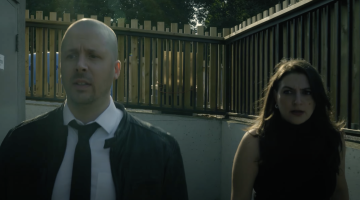
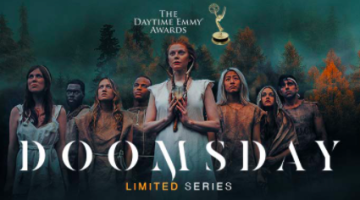


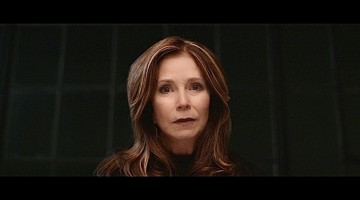
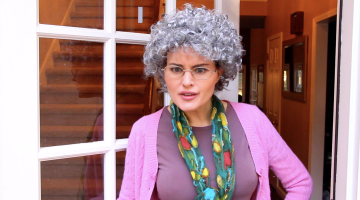
No Comment